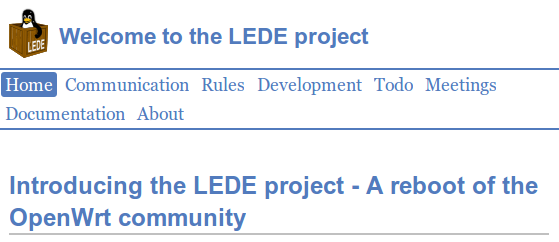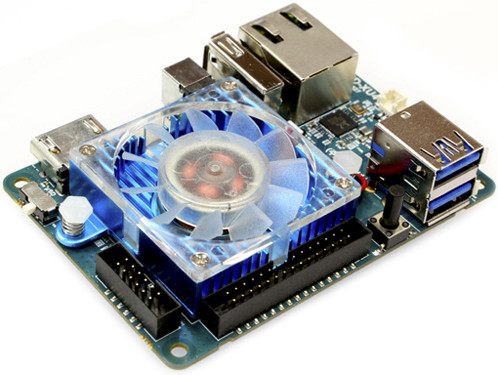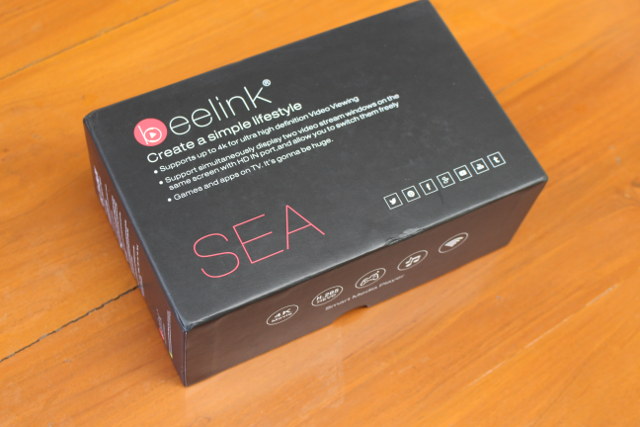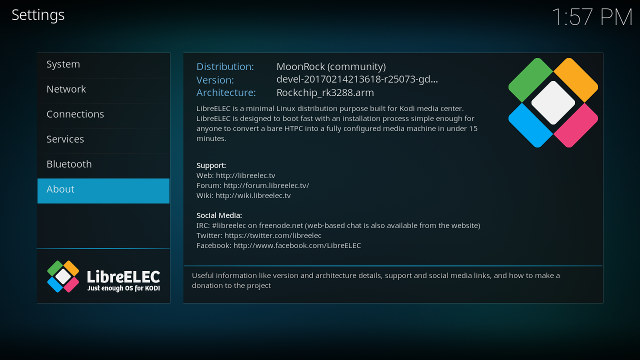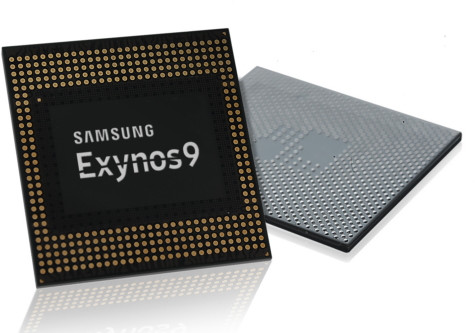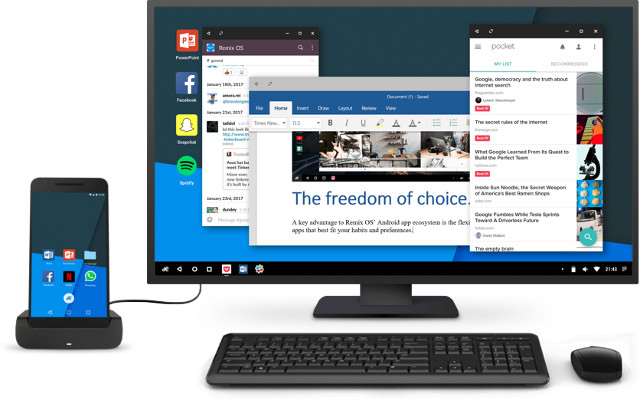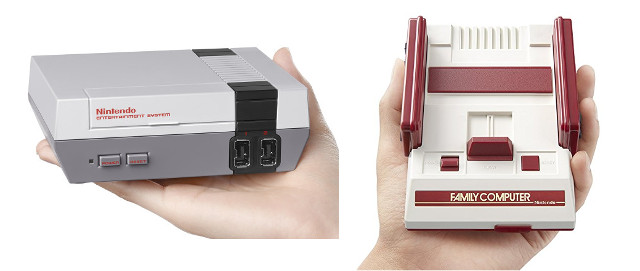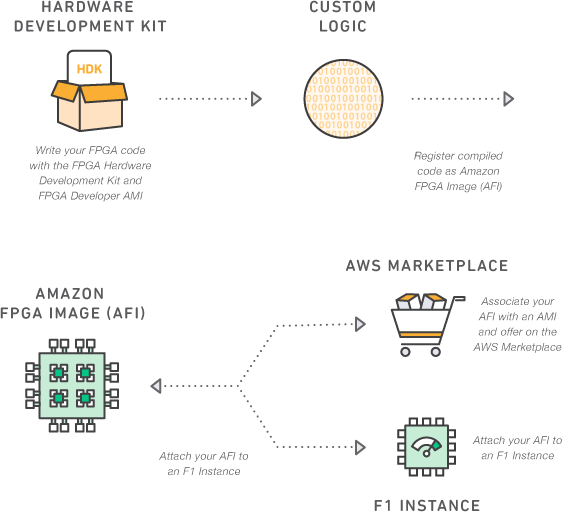LEDE (Linux Embedded Development Environment) is a fork of OpenWrt after some disagreements between developers, and while there are talks about merging OpenWrt and LEDE development, this is not done yet, and LEDE 17.01 has been released a few days ago. Some of notable LEDE 17.01 changes include: Linux kernel updated to version 4.4.50 (from 3.18 in Chaos Calmer) Update to dnsmasq 2.76, busybox 1.25.1, mbedtls 2.4.0, openssl 1.0.2k Improved Security Features Improved Networking Support Added new targets: apm821xx (AppliedMicro APM821xx) arc770 (Synopsys DesignWare ARC 770D) archs38 (Synopsys DesignWare ARC HS38) armvirt (QEMU ARM Virtual Machine) ipq806x (Qualcomm Atheros IPQ806X) layerscape (NXP Layerscape) zynq (Xilinx Zynq 7000 SoCs) Reorganized x86 target – Drop dedicated Xen DomU target, merged with x86/generic * Enable AES-NI support Build system improvements Image Builder / SDK – Rework library bundling to allow for better portability between different Linux distributions, added support for building kernel modules […]
ODROID-XU4 Development Board Price Drops to $59, Now Supports Linux 4.9 LTS
ODROID-XU4 development board powered by Samsung Exynos 5422 octa-core processor launched in summer 2015, but even after two years, it’s one of the fastest, if not the fastest, low cost development board on the market. It is also equipped with Gigabit Ethernet and USB 3.0 ports, but so far at $74, it was quite much expensive than slower peers. Hardkernel has now decided to lower the price to $59 plus shipping, which is really a good deal in terms of price/performance, and you’ll also benefit from close to two years development, as the board now supports Linux 4.9 with updates promised until early 2019. Here’s a reminder of the technical specifications: SoC – Samsung Exynos 5422 quad core ARM Cortex-A15 @ 2.0GHz + quad core ARM Cortex-A7 @ 1.4GHz with Mali-T628 MP6 GPU supporting OpenGL ES 3.0 / 2.0 / 1.1 and OpenCL 1.1 Full profile System Memory – 2GB […]
Beelink SEA I Android TV Box, and HDMI Recorder Review – Part 1: Unboxing and Teardown
Realtek RTD1295 SoC is so far found in devices running Android & OpenWrt, and equipped with an HDMI input port for recording, PiP, and UDP broadcasting. I have already reviewed Zidoo X9S with an external SATA port, and Eweat R9 Plus with a 3.5″ SATA bay, and I’ve now received Beelink SEA I offering another option thanks to 2.5″ SATA bay, and a lower price of $98.99 and up using coupon GBSEA16 with the 2GB/16GB version, or GBSEA32 with the 2GB/32GB version. As usual, I’ll start with some photos and a teardown in the first part of the review, before testing the firmware in more details. Beelink SEA I Unboxing Photos I’ve received the box in the retail package below showing some of the features like 4K video playback, picture-in-picture thanks to the HDMI input, and supports for games and apps. Beelink SEA I comes with either 16GB or 32GB […]
LibreELEC is Now Running on Ugoos UT3+ (Rockchip RK3288) TV Box
Rockchip RK3288 may have launched over two years ago, but the quad core 32-bit processor is still much more powerful than many 64-bit platforms on the market, and ASUS selected the processor for their upcoming – and not officially launched – Tinker Board. The processor was found in several Android TV boxes, but people also installed Linux on the devices, and ported Kodi 14.2 Linux to RK3288 with hardware video decoding back in 2015. The news here is that Omegamoon has recently started working on LibreELEC 8.0 port for RK3288 with a Linux 4.4 kernel, and tested it on Ugoos UT3+ TV box. Full HD movie playback is said to be smooth, Ethernet, and sound work, but WiFi still needs to be worked on. Omegamoon has released an update.img firmware which can be flashed with upgrade_tool in Linux, or AndroidTool in Windows, replaces whatever operating system you have on the […]
Samsung Launches Exynos 9 Series 8895 SoC with Custom ARMv8 Cores, Mali-G71 GPU, Gigabit LTE Modem, 10nm FinFET Process
Samsung Electronics has just announced the launch of its latest Exynos application processor (AP), with Exynos 9 Series 8895 octa-core processor with four second generation custom designed ARMv8 CPU cores, and four Cortex A53 cores, as well as a Mali-G71 3D GPU, and a Gigabit LTE modem. The LTE modem delivers data throughput at up to 1Gbps (Cat.16) downlink with 5CA (five carrier aggregation), and 150Mbps (Cat.13) uplink with 2CA. The SoC also embeds an “advanced MFC” (multi-format codec) for recording and playback at up to 4K UHD at 120 fps, a Vision Processing Unit for video tracking, image process, and machine vision technology, and another processing unit allows for mobile payments using iris or fingerprint recognition. Exynos 8895 is also the first application processor manufactured with 10-nanometer (nm) FinFET process technology and improved 3D transistor structure, which according to Samsung, allows for up to 27% higher performance, while consuming […]
Remix Singularity to Bring Remix OS Desktop Optimized Operating System to Android Smartphones
Android is great to consume content, but is a real pain to create content, as operation like copy/paste and multi-tasking you take for granted in desktop OS like Ubuntu or Windows are not well supported in Android. But Jide Technology saw an opportunity and many users are familiar with Android on their phones and tablets, and some on Android TV boxes, so they created Remix OS, based on Android, but with desktop optimization such as better multi-tasking, multi-window support, improved mouse and keyboard integration and so on. They started with a tablet, and then also worked on ARM based Android TV boxes and laptops, as well as support for x86 computers. The company has now unveiled Remix Singularity which aims to bring Remix OS to smartphones in a similar manner to Windows Continuum or Ubuntu Convergence. But beside just mobile and desktop (PC) modes, Remix Singularity will also allow to […]
RetroArch Game Emulator Can Now Run on Nintendo NES Classic Mini and Famicom Mini
Nintendo NES Classic Mini is a smaller replica of Nintendo NES with an HDMI output, and powered by an Allwinner R16 SoC. Nintendo has released a model with the same or similar hardware, but a different case for the Japanese market called Famicom Mini. Those two consoles are pre-loaded with about 30 games, and in theory you can’t add any more games. But as everything with an Allwinner processor, it can be hacked to match your needs, and people have already managed to add games using the micro USB connection and Hakchi2 script. What’s new is that you can now run RetroArch on the consoles, and probably on other Allwinner R16 platform such as the upcoming Banana Pi BPI-M2 Magic board, provided it’s connected to an LCD display. To achieve that, first you’ll need to install the latest Hakchi 2.12 tool with the procedure, clearly explained (with an older version) […]
Amazon EC2 F1 Instances Put Xilinx Virtex Ultrascale+ FPGA Boards into the Cloud
We’ve covered several board and modules based on Xilinx Zynq Ultrascale+ MPSoC such as the AXIOM Board and Trenz TE0808 SoM, both featuring ZU9EG MPSoC, with systems selling for several thousands dollars. But I’ve been informed you may not need to purchase a board to use Virtex UltraScale+ FPGAs, which are different from Zynq UltraScale+ since they lack the ARM CPU & GPU and normally feature a more capable FPGA, as last November, Amazon launched a developer preview of F1 instances giving access to this type of hardware from their cloud. That’s the FPGA hardware you’ll be able to access from one F1 instance: Xilinx UltraScale+ VU9P manufactured using a 16 nm process. 64 GB of ECC-protected memory on a 288-bit wide bus (four DDR4 channels). Dedicated PCIe x16 interface to the CPU. Approximately 2.5 million logic elements. Approximately 6,800 Digital Signal Processing (DSP) engines. Virtual JTAG interface for debugging. […]


